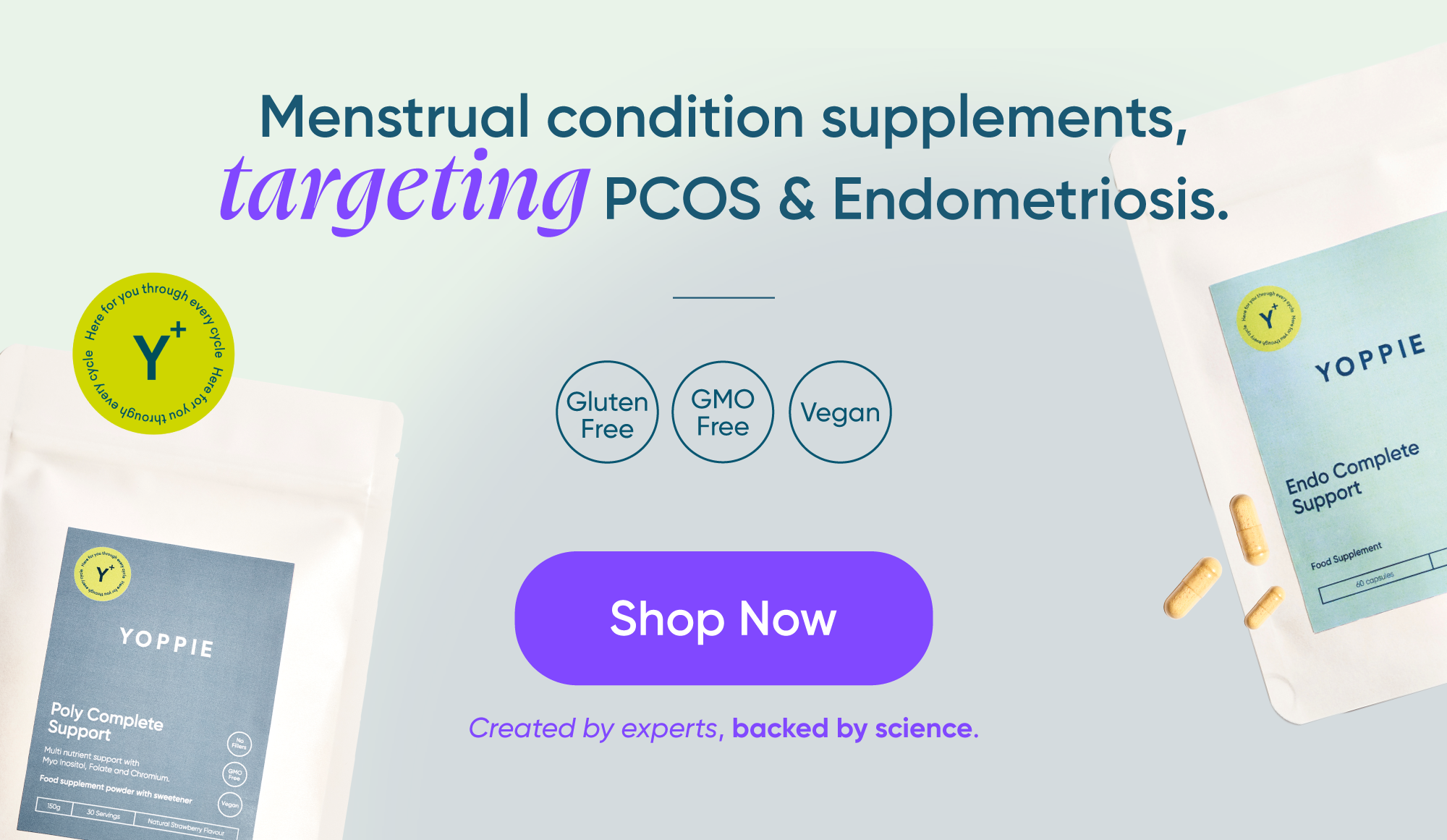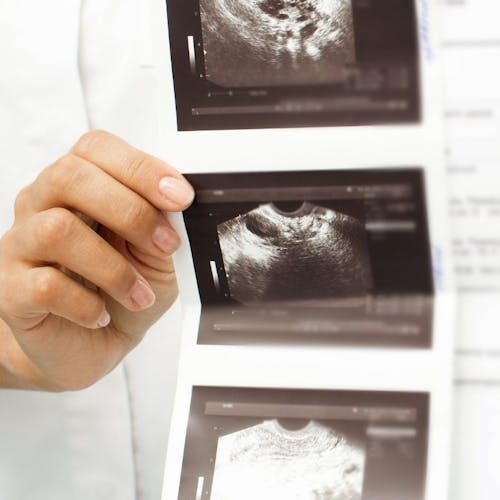This website uses cookies to enhance the user experience. By using Yoppie you are agreeing to our use of cookies.
PCOS & Alcohol - Can Going Dry Help Symptoms?
Written by Yoppie
03 Jan 2022
Can what I eat and drink affect my PCOS symptoms?
Should I be drinking if I have PCOS?
Can reducing or cutting out alcohol help my PCOS symptoms?
What else can I do to reduce my PCOS symptoms?
Dry January is upon us! And while many people are doing it to wring out their liver after a merry December, others may find benefits in saying goodbye to booze for other reasons. If you suffer from PCOS (polycystic ovary syndrome), your alcohol intake could affect this, so in this blog we’re looking at how reducing alcohol, or going totally dry, can help reduce your symptoms. Let’s dive into it…
Can what I eat and drink affect my PCOS symptoms?
Those with PCOS typically have higher than average levels of insulin, which is a hormone produced in the pancreas to help your cells turn glucose (sugar) into energy. Pretty handy! If you’re insulin resistant (as many with PCOS are) your blood sugar rises, and your body tries to counteract this by pumping out lots more insulin to keep blood sugar steady. High levels of insulin can cause the ovaries to produce additional androgen hormones, which is where many PCOS symptoms stem from.
So how does this all relate to alcohol? Your blood sugar is hugely affected by the food and drinks you consume, so a diet high in refined carbohydrates can be an issue. Similarly, there are certain components of alcoholic drinks, such as carbohydrates and resveratrol in red wine, which are thought to affect insulin levels.
Alcohol is also known to affect the menstrual cycle in general; the National Institute of Alcohol Abuse and Alcoholism states that regular heavy drinking can cause irregular or skipped periods, as alcohol can temporarily increase estrogen and testosterone levels and disrupt typical hormonal fluctuations that happen during ovulation. So whether you’re a glass-of-wine-a-week type or a beer-a-night type, the alcohol you drink could be affecting your menstrual cycle, PCOS symptoms, and general health.
Should I be drinking if I have PCOS?
Let’s be clear, there’s nothing to say you can’t or shouldn’t drink if you have PCOS. In moderation, alcohol is designed to be enjoyable (if you can avoid the hangover!) so unless you have been instructed not to do so by a doctor, having the odd glass of rosé is totally OK.
However, if you have PCOS your doctor may recommend cutting back on your alcohol intake to gain more control over your symptoms, and if you have been prescribed certain medicines for PCOS, such as Metformin, then high levels of alcohol won’t go down well. Mixing alcohol and medications should never be taken lightly, so always speak to your doctor about how much you should be drinking when on certain tablets.
Can reducing or cutting out alcohol help my PCOS symptoms?
It’s very possible, yes. First of all, PCOS is thought of as an incurable condition that can only be managed to ensure symptoms don’t affect your daily life. That said, there are rare accounts of people with PCOS who have overhauled their lifestyle and greatly reduced (or removed) their PCOS diagnosis. While these accounts should be taken with a large pinch of salt, there may be some truth to the idea that making lifestyle changes can have positive benefits on symptoms, and could even lessen the fertility issues that sometimes occur alongside PCOS.
The main reasons to cut down on your alcohol intake are to manage your blood sugar, to reduce the likelihood of liver issues, and reduce the likelihood of depression.
- As explained above, blood sugar is very important for those with PCOS. Insulin lowers blood sugar by storing the glucose in cells, but the cells can become resistant to the constant insulin and require more in order to lower blood sugar. When insulin resistance occurs for a long time, you may experience high levels of blood sugar and insulin, which can be made worse by some alcohols like wine or beer. If you do want to drink, have alcohol alongside a meal to ensure blood sugar stays stable.
- Nonalcoholic fatty liver disease (NAFLD) is common in PCOS patients, and while it’s not caused by alcohol, it can be affected by it. High insulin and triglycerides mean alcohol can make this worse over time, as well as putting stress on the liver.
- People with PCOS have an increased risk of depression, and since alcohol is known to also affect or cause depression, those who suffer with mental health issues and PCOS should be wary of their alcohol intake, to keep their mind happy and healthy.
What else can I do to reduce my PCOS symptoms?
Although your symptoms may not disappear entirely, it’s generally thought that the more you can improve your overall lifestyle in terms of diet and exercise, the better your PCOS symptoms could become, as these changes can work to reduce your insulin resistance over time. By introducing some daily physical activity, lowering your sugar intake, reducing your stress levels, and adopting a diet low in inflammation, you may notice your symptoms improve and your ovulation becomes more regular.
Are you doing Dry January to see how it affects your PCOS symptoms? We would absolutely LOVE to hear how you get on, and if you notice any positive benefits. Our Full Stop FB group is always chatting about all things menstrual cycle, and you can ask questions on Instagram at @itsyoppie. Don't forget that our personalised menstrual care subscription can get organic tampons, PCOS Supplements and much more delivered easily and regularly through your letterbox, to help keep at least some of that PCOS pain under control each month.
Section jump
Back to top
Subscribe To Our Newsletter
YOPPIE





© 2026 Yoppie is a registered trademark of Phlo Technologies Ltd.
Yoppie's supplements are not a substitute for a varied diet and healthy lifestyle and are not intended to diagnose, treat, or cure any disease. If you are pregnant, breastfeeding, have a medical condition or are under medical supervision, please consult with your doctor before taking any of our products.







